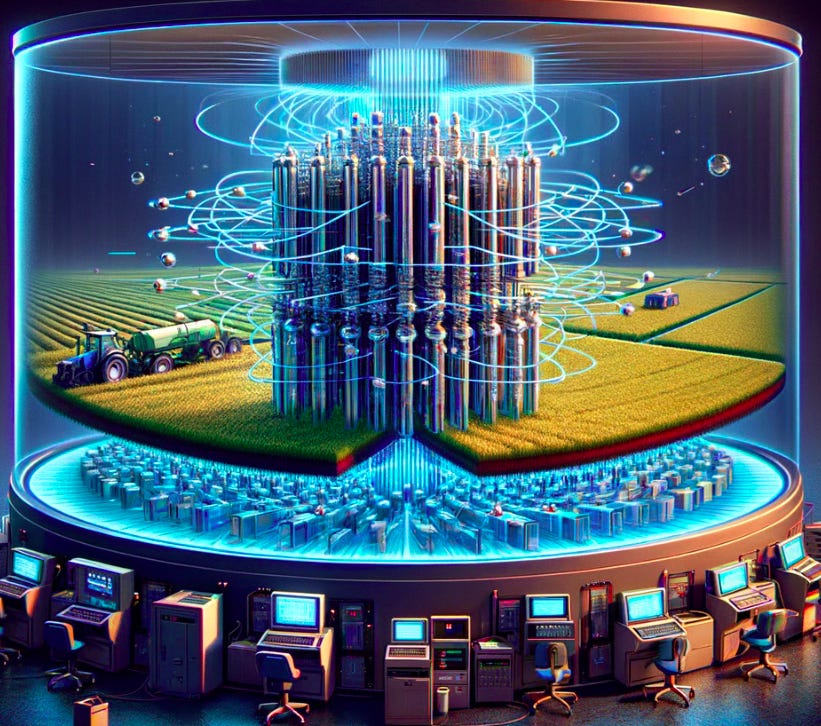🌐 The Quantum Computing in Agriculture 🚜
Revolutionizing Agriculture: The Emergence of Quantum Computing in Farming Efficiency and Predictive Analytics 🌾💻🔬
📈 What is Quantum Computing ?
Unlike the conventional computers operating on bits (0s and 1s) much like tossing a coin with head or tail states, quantum computers function on qubits. These qubits exist in a state of superposition, capable of having both ∣0⟩ and ∣1⟩ states simultaneously until the measurement much like a spinning coin. This ability allows quantum computers to process vast amounts of data more efficiently. They can perform many calculations at once, instead of one at a time like classical computers. So, for tasks that involve analyzing huge datasets, quantum computers can work through all the possible combinations of data much faster than classical computers.
🌱 How it can Impact Agriculture?
The most immediate benefit of quantum computing comes in machine learning and predictive data analytics which is widely now used in digital agriculture. Agriculture, inherently comes with large-scale data encompassing variables like climate patterns, soil health, and crop genetics, stands to gain significantly. Quantum machine learning algorithms, with its aptitude for uncovering hidden patterns, can enhance agricultural predictions, leading to more accurate and efficient farming practices.
🚀 What about physics-based models?
However, the transition to quantum computing in agriculture isn't without challenges, particularly when it comes to traditional mechanistic models. Current models, such as those trying to solve differential equations like Richards' equation through finite element methods or other numerical techniques, rely heavily on classical computing approaches. To harness the power of quantum computing for these tasks, there's a pressing need for quantum algorithms capable of solving differential equations. Research in this area holds great potential.
Once we have quantum algorithms tailored for solving differential equations, the impact on agricultural modeling will be substantial as we will have efficient physics based mechanistic models crushing numbers at quantum speed, thanks to numerical differential equation algorithms designed specifically for the quantum framework.
While the journey involves significant research and development, especially in creating suitable quantum algorithms for differential equations, the potential rewards are vast. We stand on the cusp of a new era where quantum computing could redefine agricultural practices, making them more efficient, precise, and sustainable
#quantumcomputing #digitalagriculture #futurescientists #technology




